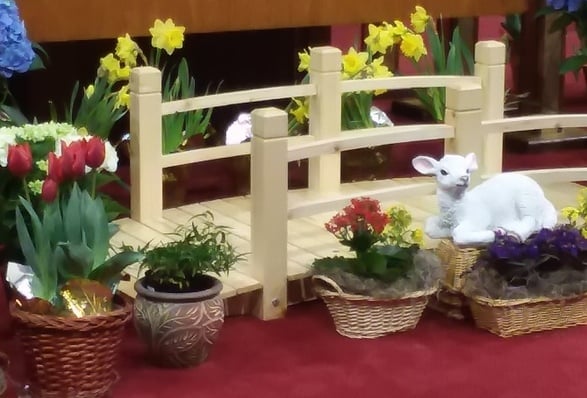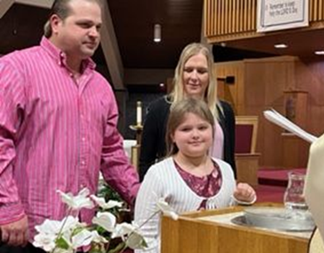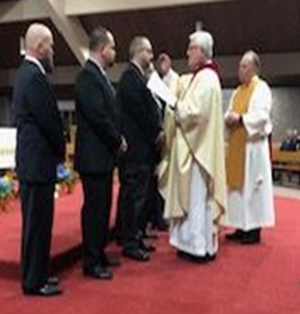OCIA - Order of Christian Initiation of Adults
-
Welcome to ocia!
-
We welcome you to the Initiation process! The purpose of the OCIA (formerly RCIA) process is to create a space for participants to encounter the Lord, hear the message of the Gospel, and decide to follow Jesus Christ.
The Catholic Church is a church of converts. Ever since Peter preached the first homily on Pentecost Sunday, the Church has been attracting converts from every race, language, nation, and culture. What started in Jerusalem over 2000 years ago, continues with us today. As we transition to Families of Parishes, we have a unique opportunity to unleash the Gospel and bring people to Jesus in new and exciting ways.
The OCIA/RCIA process has a special role in bringing people to Jesus, as it is the primary means by which we receive adults into the Church. Individuals who enter the OCIA/RCIA fall into 3 categories:
• those seeking Baptism
• those Baptized in other faiths seeking full communion with the Catholic Church, and
• those Baptized Catholic but needing to complete their sacraments of Initiation.
This program is for adults: students 1 - 12th grade should be registered in Religious Education classes. (If you need Confirmation and/or First Holy Communion and you are in grades 2- 12 please contact the Religious Education department.)
Individuals seeking baptism are called catechumens; and the baptized seeking full initiation are called candidates.
This article from the Archdiocese of Detroit gives a description of the purpose and guidelines; now let us prepare you. If you would like more information, please email: [email protected] Lynn McKnight, DRE, St. Faustina Religious Education Department, phone: 586-773-9220 Ext. 111.
-
-
-
What is OCIA?
Interested in becoming Catholic? Ready to complete your sacraments? Just want to learn more about what the Church teaches?
For decades, the answer was the same: Join RCIA.
The Rite of Christian Initiation of Adults, the process by which the Church brings in new converts and educates catechumens and candidates, has been a staple in Catholic life and lingo for years. But in November 2021, the U.S. Conference of Catholic Bishops changed the name of one of the best-known acronyms in the Church, reorienting the Rite of Christian Initiation of Adults (RCIA) into the new Order of Christian Initiation of Adults (OCIA).
So, is the new answer simply, "join OCIA"?
Yes, but there's more to it than that.
It might seem like semantics, but changing the process of entering the Church from a "rite" to an "order" has practical implications. For one thing, rites are still part of the order — for instance, the Rite of Election — but the new structure is meant to invite candidates and catechumens into a continuous process of spiritual formation as opposed to fixed checkpoints on the path to baptism, first Communion and confirmation.
Ideally, those interested in joining OCIA wouldn't have to wait until the fall to do so.The catechumenate is meant to be an ongoing formation process in which the initiated are invited to become involved in the parish, attend Mass and OCIA classes and work with catechists in delving into topics such as creation, salvation, the sacraments, the Church and the four "last things" (death, judgment, heaven and hell).
Still part of the OCIA process are rites such as the Rite of Entrance to the Catechumenate and the Rite of Sending, which both occur at the parish level, and the Rite of Election, which occurs at the cathedral with the bishop. Following that is a series of rites called the Scrutinies, and after that are the Rites of Initiation.
These rites aren't new to the Church, but by making the entire process an "order," the candidate or catechumen understands the rites received in church or at the parish are just one part of the ongoing journey of discipleship that will culminate with baptism and confirmation — usually during the Easter Vigil — but will continue throughout their lives.
- Adapted from an article in the Detroit Catholic dated Nov 20, 2022 by Daniel Meloy
For the full article, click here.
St. Faustina is extending a personal invitation to you so that we can help with your spiritual needs.
Young are Baptized as others Convert to Catholicism and are Confirmed.









-